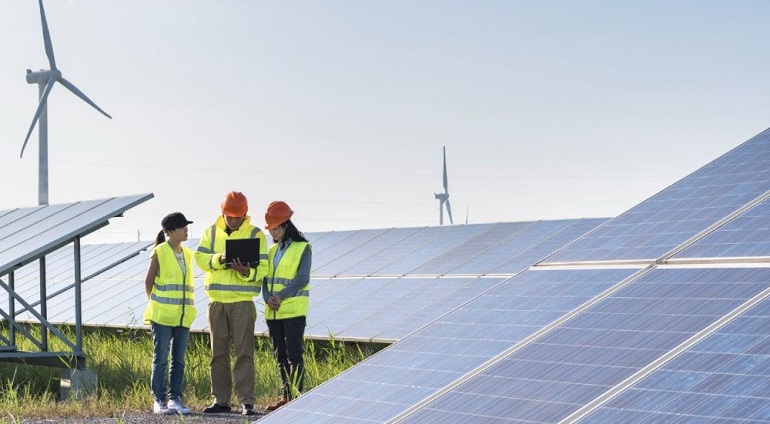Sweden Tops the List, India Shows Significant Progress in Energy Transition
The World Economic Forum (WEF) has released its Energy Transition Index, ranking India at the 67th position globally. Sweden secured the top spot, followed closely by Denmark, Norway, Finland, and Switzerland in the top five.
The index evaluates the energy transition progress of 120 countries based on various dimensions.
WEF highlighted India as the only major economy with accelerating momentum across all dimensions of energy transition. Despite the global energy crisis and geopolitical uncertainties, India has made significant improvements.
The country has successfully reduced the energy intensity of its economy and the carbon intensity of its energy mix, achieved universal energy access, and effectively managed the affordability of electricity.
India’s improved performance can be attributed to key factors such as achieving universal access to electricity, replacing solid fuels with clean cooking options, and increasing renewable energy deployment.
These initiatives have contributed to enhancing India’s standing in the global energy transition landscape.
The report published in collaboration with Accenture emphasized the plateauing of the global energy transition.
However, India’s progress stands out among countries, demonstrating its commitment to equitable, secure, and sustainable energy transitions.
Despite continued economic growth, India has mitigated the impact of the recent energy crisis due to its low reliance on natural gas in power generation and the utilization of existing generation capacities.
However, rising import dependence remains a concern amid volatile global energy markets.
India’s energy mix still relies predominantly on carbon-intensive sources, with a relatively low share of clean energy in final demand.
To further enhance the enabling environment, the report highlighted the importance of political commitment, ambitious reform agendas, infrastructure investments, and a competitive renewable energy landscape.
Looking ahead, the report emphasized the need to address challenges posed by strong economic growth and the urgency to create quality jobs for a growing working-age population.
Strategies for early retirement or repurposing of existing thermal power plants will play a crucial role, while investments in research and development of low-carbon technologies are essential for India’s energy transition.
The WEF report also recognized Singapore as the only other major economy demonstrating true momentum in advancing sustainability, energy security, and equity. Among the G20 countries, France ranked seventh, followed closely by Germany, the United States, and the United Kingdom.
Out of the 120 countries assessed, 113 have made progress in energy transition over the past decade. However, only 55, including India, have significantly improved their scores by more than 10 percentage points.
India’s progress in energy transition signals its commitment to a cleaner and more sustainable future.
Overall, India’s ranking on the Energy Transition Index reflects its dedication and progress in the energy sector, laying a strong foundation for continued advancements in sustainable and inclusive energy transitions.


